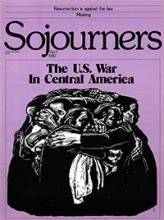Following is the second of two excerpts from A Simplicity of Faith: My Experience in Mourning, published by Abingdon in 1982. The article includes a short introduction taken from the book's preface and two sections from its last chapter, titled "Joy."
I do not anticipate that either my grief at Anthony's death or my mourning for Anthony's life will be exhausted or concluded by the writing of this book. The fact that I have been able to write it only indicates that both my grieving and my mourning have matured enough--beyond initial traumas--to become continuing features of my daily life. I do not expect the grief to ever be fully dissipated; I do not want the mourning to ever be completed. Furthermore, I think that, in the months that have elapsed since 11:28 p.m. on January 28, 1980, I have grieved and mourned sufficiently so that I now distinguish the one from the other. I mention that here, at the outset of this book, because it informs and affects everything else I have written in this book.
Read the Full Article

